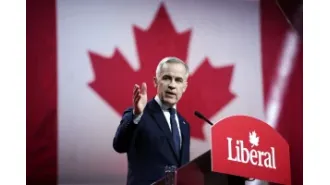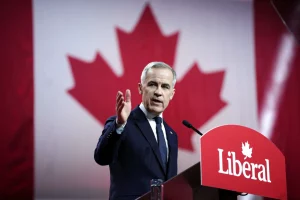Government considering giving public sector employees a raise above the rate of inflation, according to Chancellor's comments.
The NHS has faced a series of strikes due to disputes over healthcare employee wages.

In the near future, public sector workers may see a pay increase above the rate of inflation. According to reports in The Times, independent pay review bodies have recommended a 5.5% raise for teachers and approximately 1.3 million NHS workers. This comes as inflation currently stands around 2%.
Chancellor Rachel Reeves spoke to BBC's Laura Kuenssberg, stating that the decision will be made in a proper and responsible manner. She emphasized the importance of ensuring that the numbers add up. This potential pay increase could help address the concerns of unions who have been protesting against stagnant wages for over a decade. These low wages have contributed to recruitment and retention issues across the public sector.
The projected 5.5% raise could result in an additional cost of £3 billion for schools and the NHS alone, as estimated by the Institute for Fiscal Studies. If applied to all public sector workers, taxpayers could be looking at a potential cost of around £10 billion, as predicted by the IFS. Reeves also acknowledged the cost of not settling, which includes further industrial action and challenges in recruiting and retaining doctors, nurses, and teachers.
The strikes by healthcare workers have already cost the NHS approximately £1.5 billion in the last 12 months leading up to January this year, according to NHS England. These disputes stem from years of stagnant wages, making it difficult to fill the roughly 100,000 vacancies across the NHS in England. A similar issue exists in schools, where staff shortages have led to increased workloads and burnout among teachers.
The real value of pay for doctors, nurses, and teachers has fallen by as much as 10% between 2010 and 2019, as reported by the IFS. And with the rising cost of living, their pay has continued to decrease. In contrast, private sector workers saw a 2.3% increase in their pay from the end of 2019 to November 2023, after adjusting for inflation.
However, there are concerns about whether schools and the NHS can afford a 5.5% pay rise from their existing budgets. Shadow Chancellor Jeremy Hunt has accused Labour of planning to raise taxes, and the director of the IFS think tank, Paul Johnson, has stated that the cost of a pay rise of this magnitude would require an additional £1 billion for schools and double that for the NHS.
In response to these concerns, Chancellor Reeves stressed her spending rules as non-negotiable and promised to make decisions in a responsible manner. She also placed blame on former Conservative ministers for avoiding this issue, claiming that they have been running away from making a decision. She pointed out that the former Education Secretary, Gillian Keegan, left pay review recommendations sitting on her desk for months without a response.
However, Reeves' own ministers have been hesitant to confirm whether plans for a 5.5% pay rise are in motion. Reeves stated that people won't have to wait long for a decision, but Treasury minister James Murray stated that the government's response to pay recommendations will be presented at the end of the month, once the state of public finances is taken into account. He also stated that it would not be helpful to preempt the decision-making process.
As with many spending decisions facing the new Labour government, Reeves has blamed the previous Conservative administration for their tendency to count every penny. This has caused division within Labour, as they hide behind the issue of affordability to avoid scrapping the two-child benefit cap, which could potentially lift half a million children out of poverty.
During her appearance on Sunday with Laura Kuenssberg, the BBC journalist claimed that there is nothing that Labour is currently doing to immediately put money into the pockets of working people. In her first speech as Chancellor, Reeves described the financial situation inherited from the Conservatives as the worst since the Second World War. However, former Chancellor Jeremy Hunt disagrees, calling it "absolute nonsense" and accusing Labour of laying the groundwork for tax increases.
Hunt believes that with restraint on public sector pay, ambitious plans for public sector productivity, and welfare reform, it is possible to balance the books without raising taxes. He also denies the accusation that the Conservatives have run away from making tough decisions. He claims that while he may be criticized for many things, avoiding difficult decisions is not one of them.










